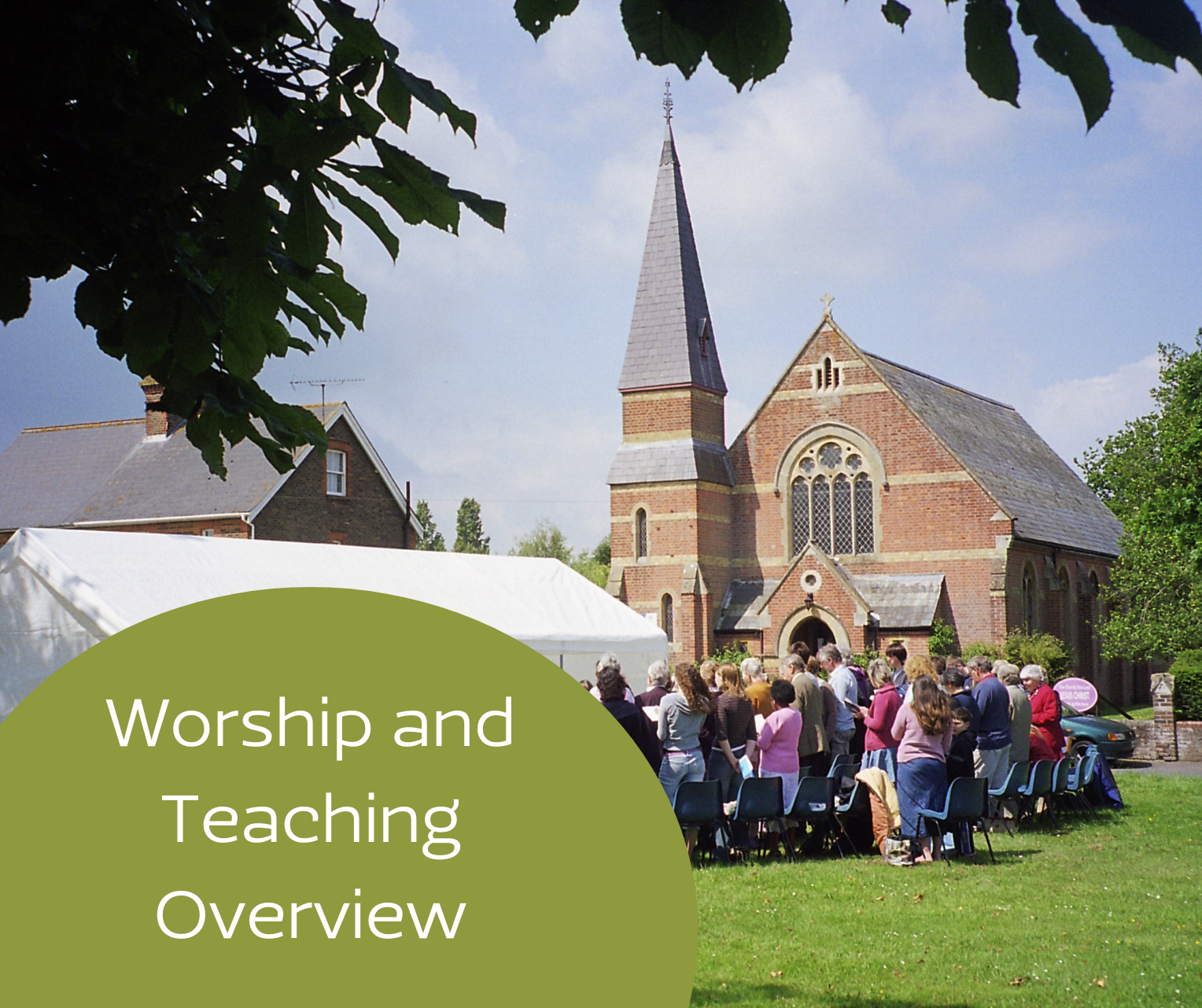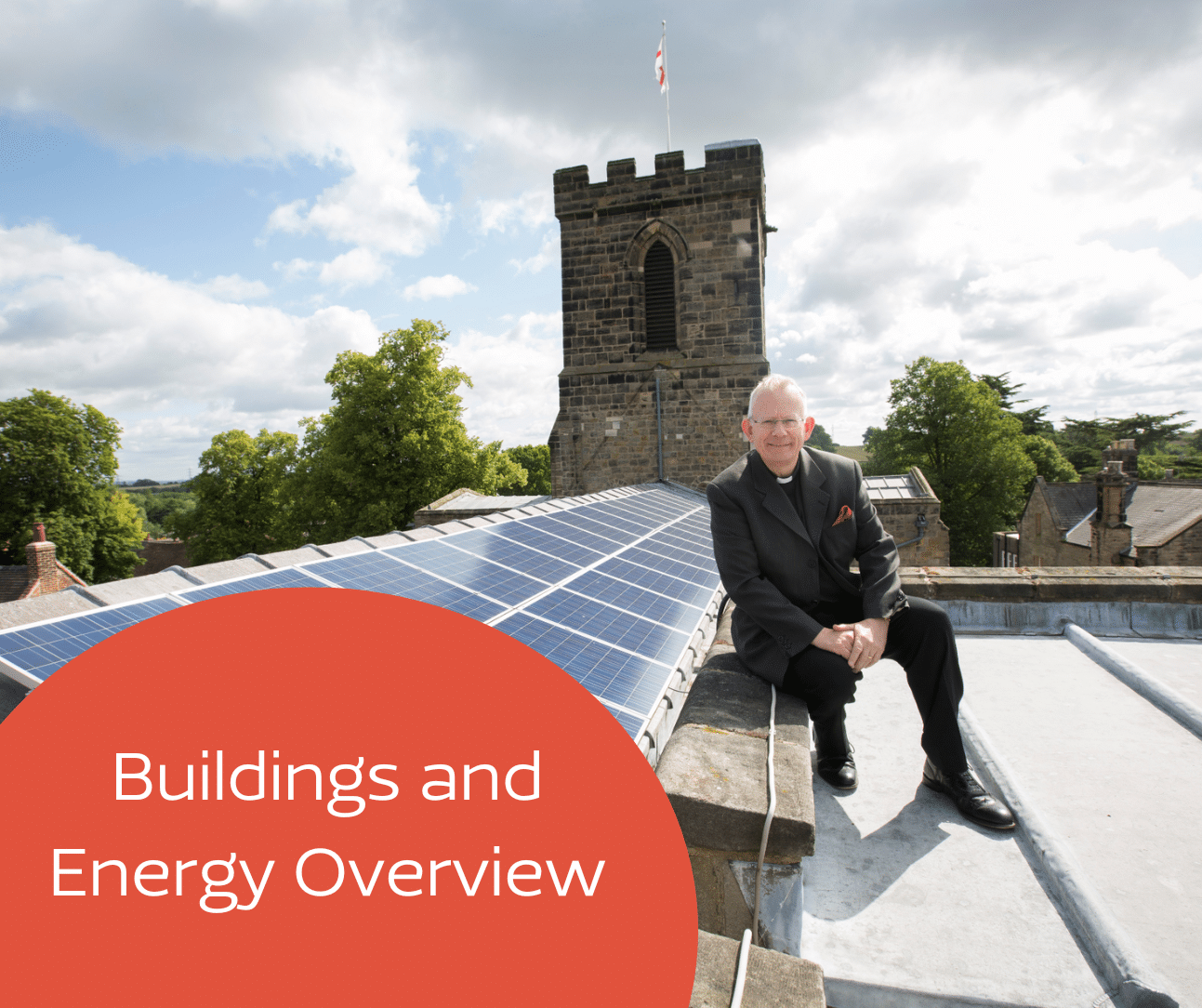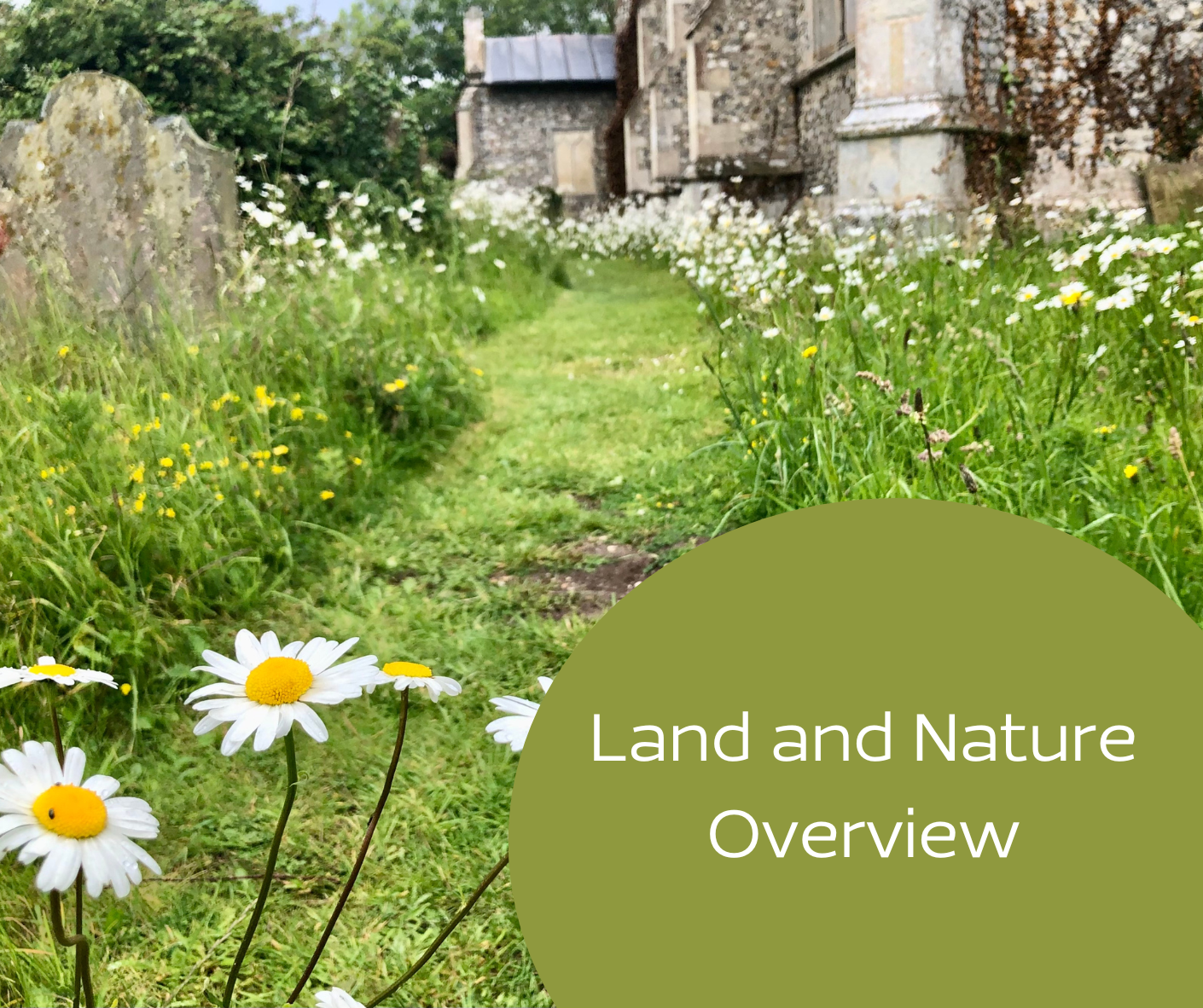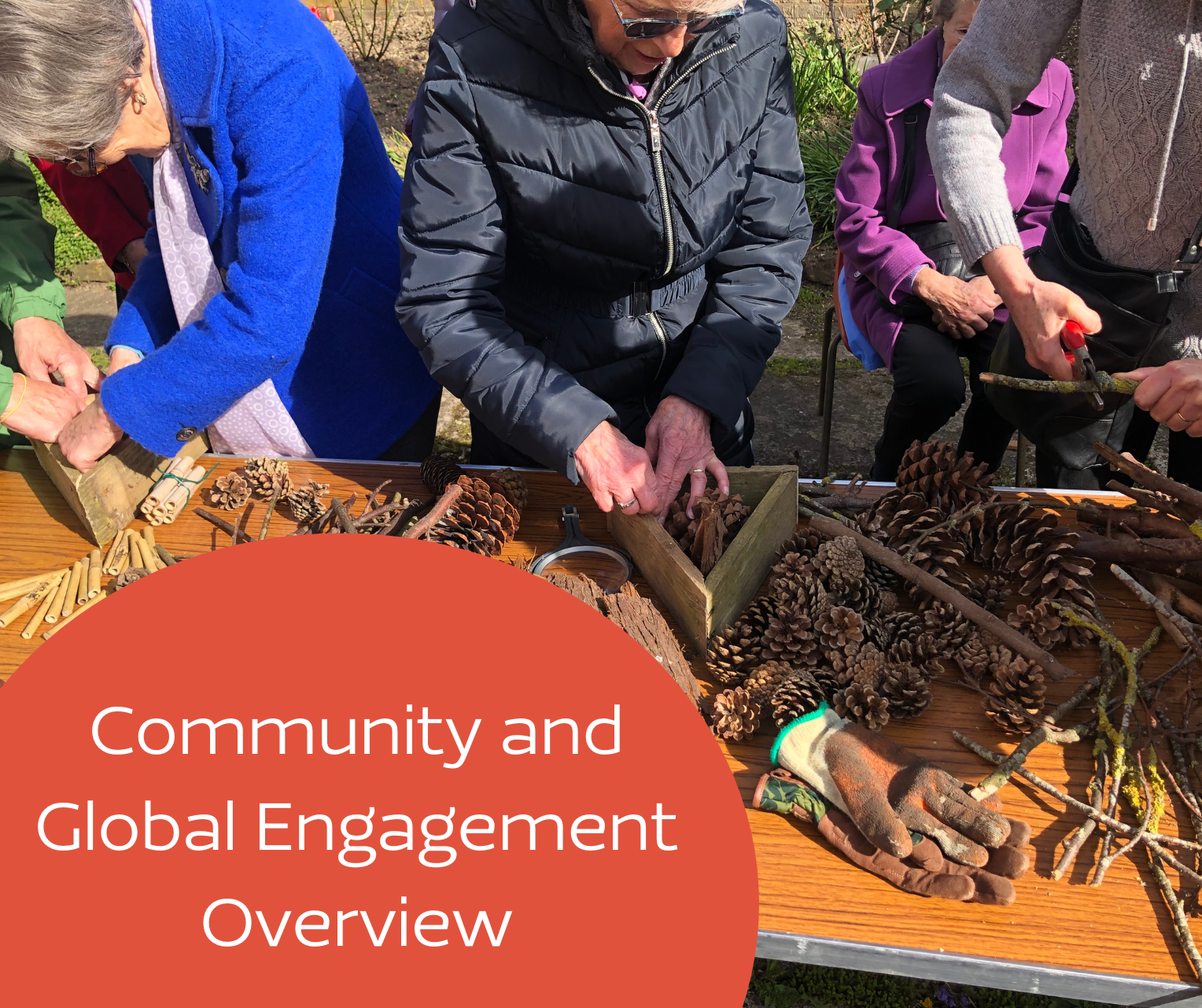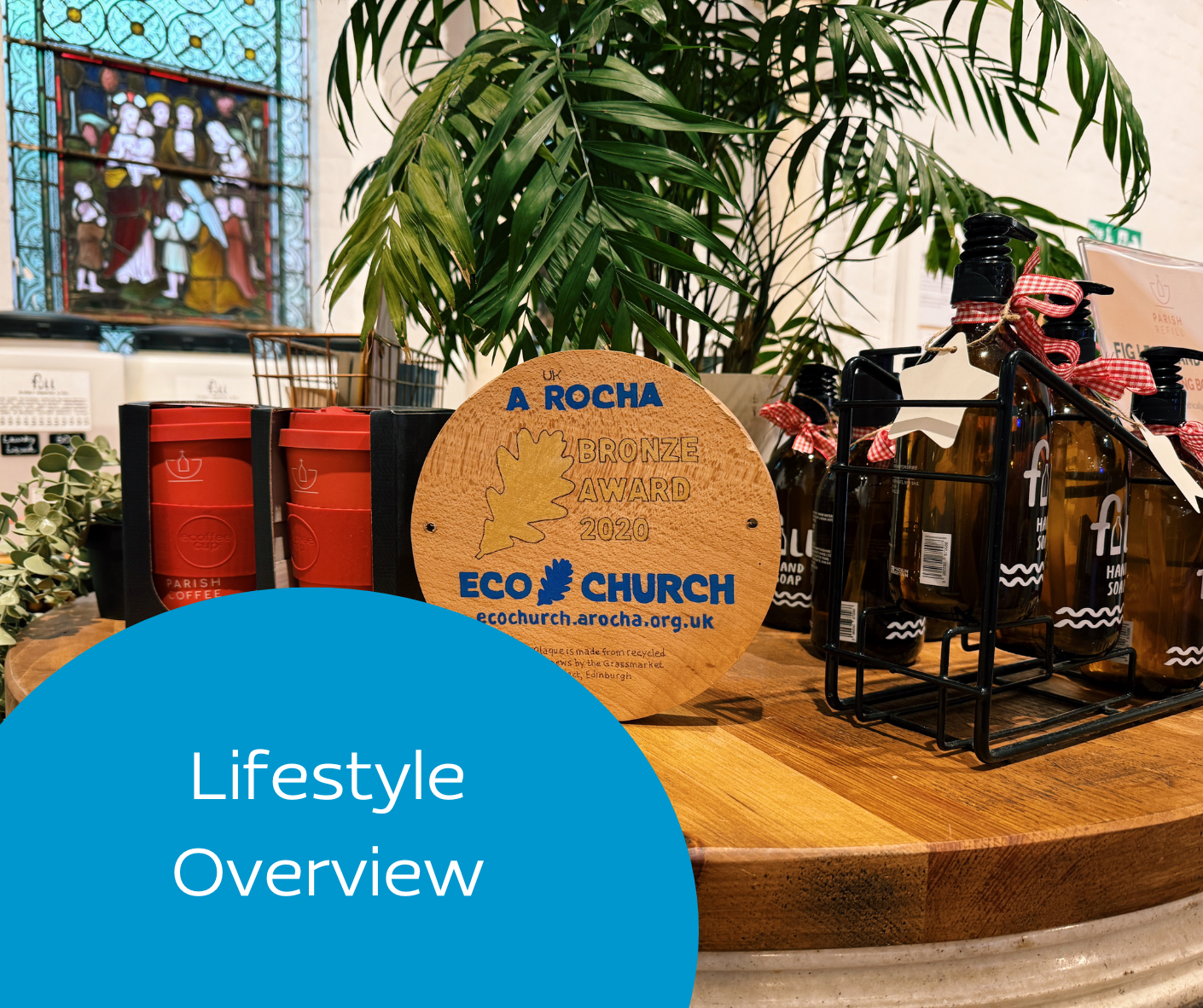The Eco Church survey - a framework for action
The Eco Church survey provides a framework to support your church and its leadership to take practical action on caring for God’s earth.
The survey covers five key areas of church life:
- Worship and teaching
- Buildings and energy
- Land and nature
- Community and global engagement
- Lifestyle
To apply for an Eco Church award, work your way through the Eco Church survey as a reflection of all that your church is currently doing. You can use the questions in the survey as inspiration for future action and activities.
The survey framework is the same for all three Eco Church award levels - bronze, silver, and gold. It is your responses that indicate which award level you have reached!
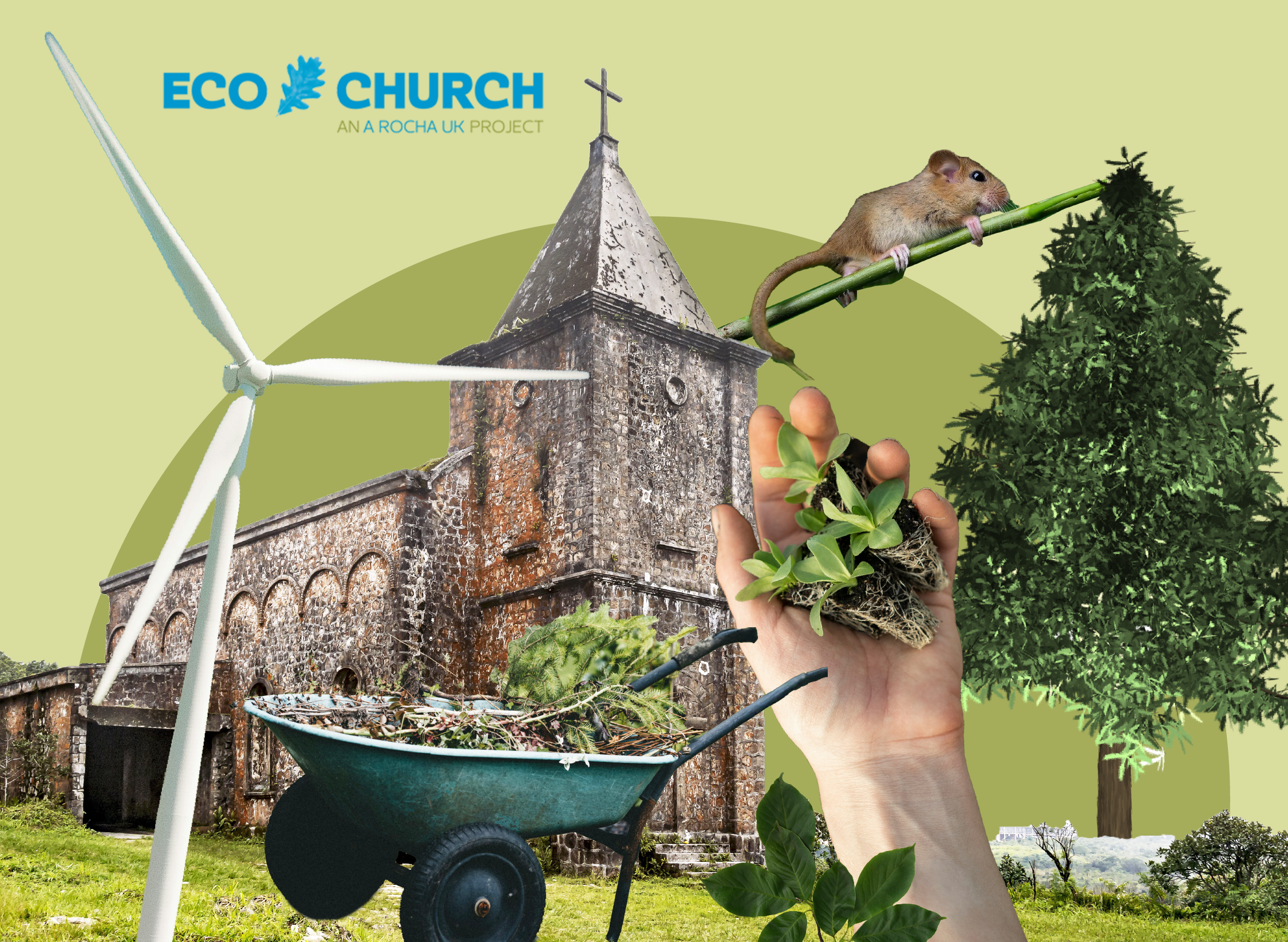
New to Eco Church?
See our resources on 'Getting started with Eco Church' and 'The Eco Church survey at a glance' for some helpful guidance on getting started! These resources are available in both English and Welsh.
Finding the survey
To explore the Eco Church survey, simply log in on the Eco Church platform, join your church, and start a new survey! Click 'printer friendly version' to view all the survey questions for all five categories in one go. You will need to select the appropriate pathway for your church first to see the buildings and land questions. Or, check out our printer-friendly versions by clicking the images below.
Explore the page below for an overview and more information on each survey category.
Applying for an Award
You'll need to achieve an award level across all five categories to apply for an award, so all five must be bronze or higher to apply for a Bronze Award, all five must be silver or higher to apply for a Silver award, and so on. If you have not quite reached the threshold for an award in a certain area of church life, we hope this can serve as inspiration for where to focus your actions and activities next! You must ensure every question in the survey has an answer in order to be able to apply for an Eco Church award.
Understand the five categories of church life explored in the Eco Church survey
Worship and Teaching
We worship a God who loves the earth he created and calls us to care for it. Doing so is part of our worship and witness as we respond to a creation that is groaning. Churches participating in Eco Church come from a broad variety of traditions which while bringing enormous breadth and richness, makes it challenging to craft one survey that covers the language and practice of every tradition - so please interpret these questions within your specific context.
Please refer to the Worship and teaching overview document for further guidance about completing this category, and explore our worship and teaching resources.
Buildings and Energy
While ‘church’ is not the building we meet in, for many of us our corporate worship and activities happen in a building(s), and our use of these spaces is what generates the most significant aspect of our energy emissions.
Most denominations have now set a target date for achieving net zero carbon emissions, and the UK government has targets of 77% reduction on 1990 emissions by 2035, and net zero carbon by 2050. This section of the survey category focuses on reducing carbon emissions from your building(s) and energy use and how we might use these spaces better in a changing climate.
There are 3 pathways through the ‘Buildings and energy’ category of the survey.
Please identify which pathway to follow by choosing a pathway for your building(s) which on balance best fits your situation. Please include all the buildings you own, manage or use.
Pathway 1 Cathedrals and churches which are used regularly (at least weekly) and have energy and water supplies.
Pathway 2. Small, intermittently used churches, including those without energy or water supplies.
Pathway 3. Churches without their own building (e.g. those that meet in rented space or outdoors).
Please refer to the Buildings and energy overview document for further guidance about completing this category, and explore our Buildings and energy resources.
Land and nature
When churches manage land for nature, be it land owned by the church or land in the local community, they reinforce the whole mission of the church by caring for creation and serving the community - increasing access to nature for human wellbeing, building climate resilience and pointing people towards our Creator God.
There are two pathways through this survey category:
Pathway 1: for churches which own or manage land such as a garden, churchyard or burial ground
Pathway 2: for churches with very limited land such as a paved car park, a perimeter or other hard-standing areas and for churches that do not own or manage any land. This pathway asks you to consider your own small amount of land, if you have any, and also how you can have an influence on land managed by others.
Please refer to the Land and nature overview document for further guidance about completing this category, and explore our Land and nature resources.
Community and Global Engagement
The climate and nature crises are profoundly unjust, with the most devastating impacts affecting the poor and vulnerable who have done the least to cause the crisis. We are called to love our neighbour, and so it is our responsibility to them and the places they live, wherever they are, to demonstrate love for people and nature by advocating for a more just world (Micah 6:8). While there is much that we can do as a church body, our impact will be even greater when we work with others to bring about local and global change.
Wherever you are on your journey with social and political engagement, this category is an invitation to the next step whether that looks like starting a conversation in your church, joining local events engaging in social and environmental justice, or joining a campaign for nature.
This category aims to help your church think and act clearly and effectively, with others. Having a plan or strategy (evidence of intentionality) will help your church:
- have the conversations necessary to build an understanding of the issues and kick-start action
- affirm your commitment to act for justice for people and nature
- identify ways to turn this commitment into action (e.g. engaging with Great Big Green Week, speaking to your MP about nature and climate)
- identify ways in which the impact of your actions can be measured.
Please refer to the Community and global engagement overview document for further guidance about completing this category, and explore our Community and Global Engagement resources.
Lifestyle
We worship a God who loves the earth he created and calls us to care for it. While it’s important to take action together as a church, we also have an individual responsibility to take action in our daily lives so that we tread lightly on the earth, and use our voices to speak up for nature. This category is about our churches encouraging people to act as individuals and households - integrating creation care into daily lives out of integrity, as an act of worship and obedience to God and as we grow in discipleship.
Please refer to the Lifestyle overview document for further guidance about completing this category, and explore our Lifestyle resources.




